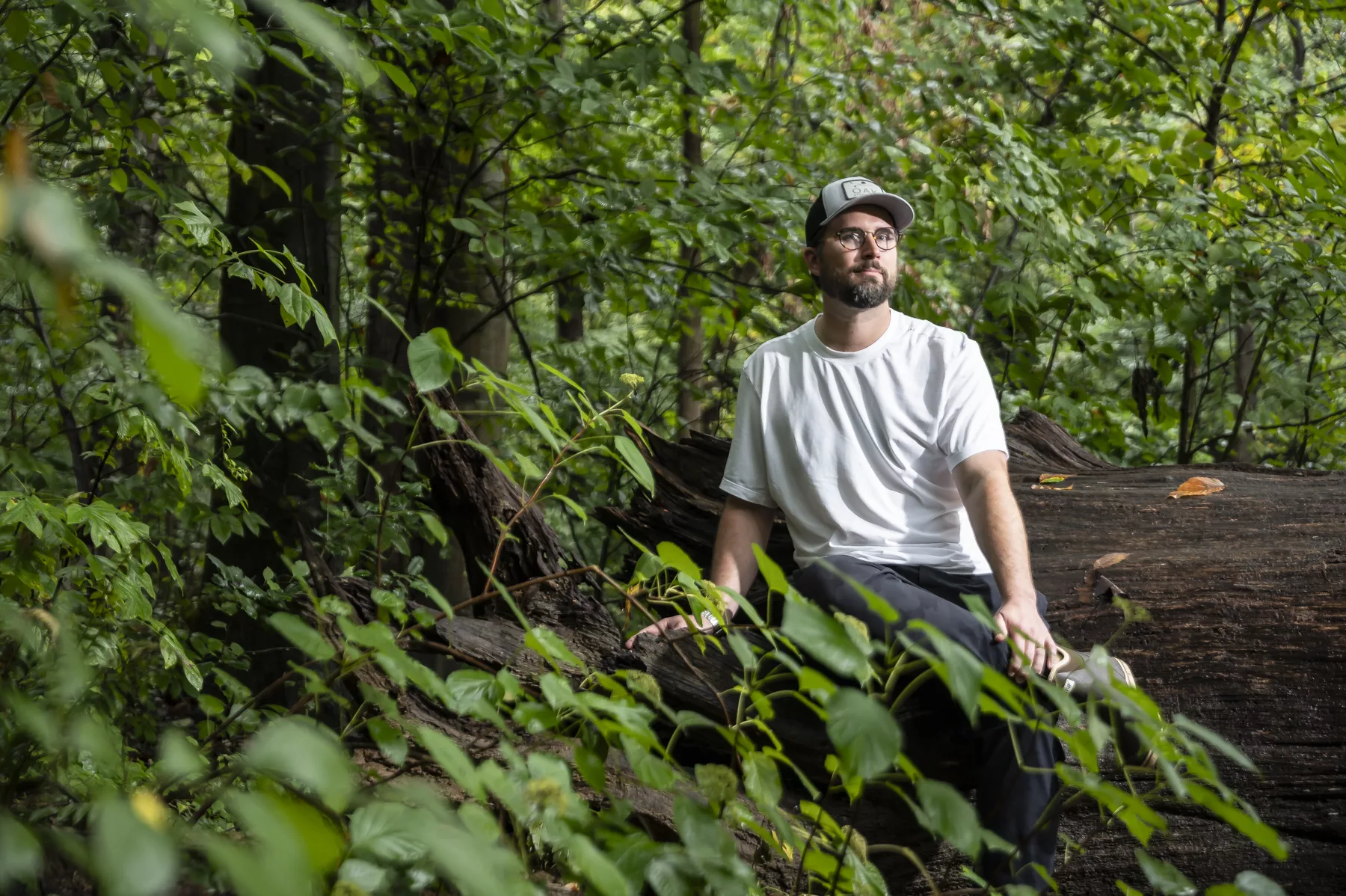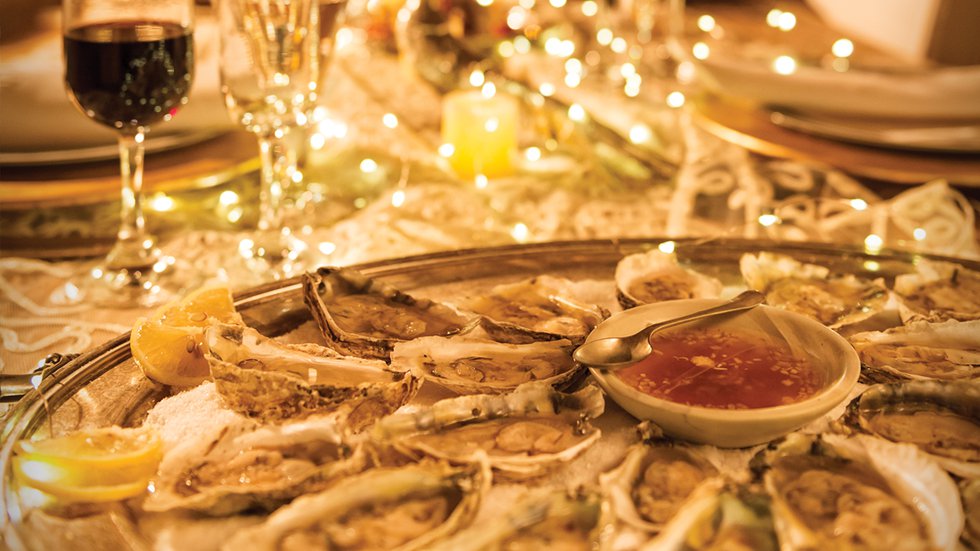The act of venturing out into the woods, picking a wild berry, and eating it may not feel innate to many of us. A morning foraging for squash and sage at our local farmers market sounds adventurous enough. It’s all many of us have time for.
But Chef Jeremiah Langhorne, who grew up in Charlottesville, has more confidence in the process. “As animals, humans have pretty good instincts about what we should and shouldn’t eat.”
Langhorne is now one of the region’s culinary stars. He’s the award-winning executive chef
and owner of Michelin-star rated restaurant The Dabney and the French-inspired Petite Cerise, both in Washington, D.C.
Generations of Knowledge
Raised in the shadows of the Blue Ridge Mountains, Langhorne’s instincts are fueled by decades of research and listening to those who’ve been in the forest for years. Before the idea of foraging entered his lexicon, he picked up on the plants his mother pointed out on walks or the herbs he saw make their way into a kitchen. “There are generations of knowledge in the community. People—our grandmothers—they grew up finding, cooking, and eating these things, like pokeweed.”
That’s the same pokeweed that takes over yards and frustrates gardeners. Early shoots can be boiled down and eaten, but that’s an Appalachian culinary tradition that—perhaps for the better—has been lost to time.
Regardless of their place in today’s diet, these are the stories that inform today’s cooks, chefs, and menus. It’s taking note of when someone points out the abundance of wood sorrel or noticing a sprig of wild mint by the roadside. These instances are how we come to understand what can and can’t be foraged. Langhorne combines passed down history with reading—lots of reading. Books on foraging were a natural place to start, but he also finds foraging inspiration in historic cookbooks. Again, it comes back to those food traditions rooted in people whose everyday lives were more connected to the land.
“I collect historic cookbooks from across the region,” Langhorne says. “I have cookbooks from Virginia, Maryland, and Kentucky. People would have collections of recipes they made for their family. If they started to get a reputation for their cooking, they’d turn those recipes into a cookbook.”
Foraging Through the Pages of History
Reading through his heirloom cookbooks, Langhorne has stumbled across plants that he’s familiar with in the forest, but being used in a way that’s unrecognizable to a modern-day kitchen. One of those plants is the ubiquitous black walnut tree.
“There’s always someone happy to have you collect their black walnuts, and I’ve had many ideas with the fruit,” he says, “but I never thought about the leaves.”
That was until he learned about Bay Sauce, an 18th-century condiment that’s had a resurgence. Made from the young, tender leaves of the black walnut tree, Bay Sauce has a savory flavor that most closely resembles Worcestershire Sauce. Poured over oysters, it’s a delicacy deserving of a comeback.
Unlocking the Secrets of the Seasons
Today, Langhorne’s duties keep him in the restaurant most days, but he knows the seasons and the rhythms of the landscape. “I know what’s out there, and based on time, weather, and season, I’ll call a professional forager.”
Having connections to the forest is akin to unlocking a secret. The strict seasonality of
foraging leaves little room for error. Strike one day too early, it’s not there. Come back to the same spot two weeks later, and you could be picking at remnants. That urgency is also part of the appeal. It’s what makes these foraged treasures so sought after. “I’ve driven five hours to forage wild ramps,” he admits.
The first cool days of fall represent a prime time for foragers. Black trumpets, oyster mushrooms, hen of the woods, and chanterelles dance through the dreams of those who can’t wait to fill their baskets. To his fall foraging list, Chef Langhorne adds wood sorrel, wild fennel, and wild Virginia rose hips, which he makes into jams and compotes.
But, regardless of season, Langhorne knows where he’ll be if he gets a free day back in
Charlottesville. “I’ll go out foraging for the day—I’m happy to go hang out in the woods.”

This article originally appeared in the December 2024 issue.










